Opening remarks from the Baltic ambassadors underscored the project’s historical and strategic importance. H.E. Mr Giedrius Puodžiūnas, Ambassador of Lithuania, stressed that the current geopolitical climate gives Rail Baltica significant strategic value, particularly in terms of defence. He said that committing to the project’s timely completion is an investment in Europe’s collective security.
H.E. Ms Alda Vanaga, Ambassador of Latvia, remarked that Rail Baltica is more than a railway project – it represents a historic correction. She pointed out that it helps to undo the legacy of Soviet occupation, which severed the Baltic states from the rest of Europe. Ms Vanaga also emphasized that beyond economic and environmental benefits, the project fosters human connection and serves as a bridge of opportunity across Europe.
H.E. Ms Marika Linntam, Ambassador of Estonia to Germany, described Rail Baltica as a genuinely European connectivity initiative. She noted the wide range of opportunities it will offer and said she personally looks forward to one day travelling by high-speed train from Tallinn to Berlin. Ms Linntam expressed hope that the seminar would encourage productive discussions and strong partnerships.
The seminar featured key presentations on project implementation status across the Baltic states. Mr Marko Kivila (RB Rail), Mr Anvar Salomets (Rail Baltic Estonia), Mr Jānis Naglis (Eiropas Dzelzceļa līnijas), and Mr Vytautas Tilinskas (LTG Infra) outlined the project’s advancement in planning, contracting, and construction.
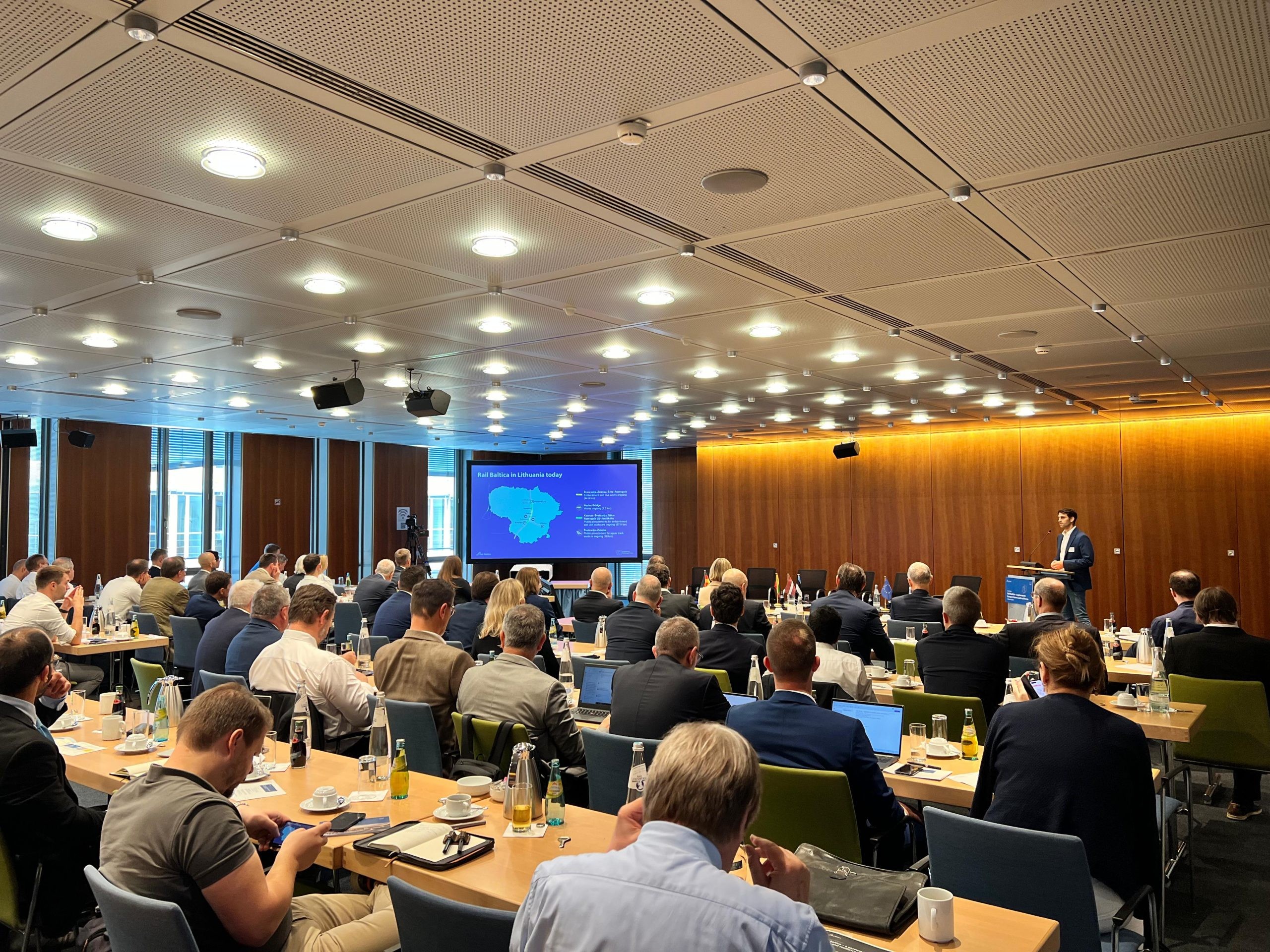
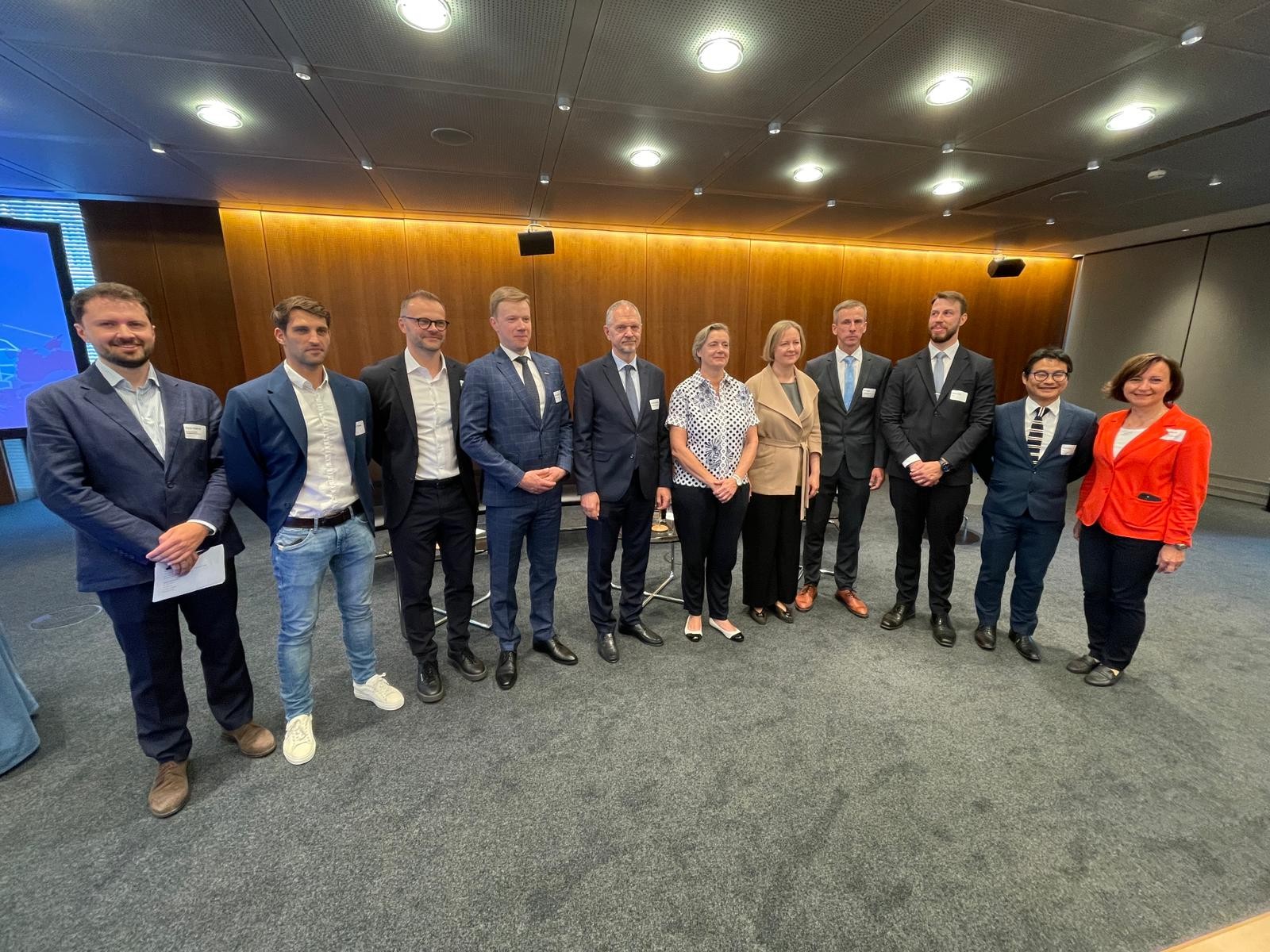
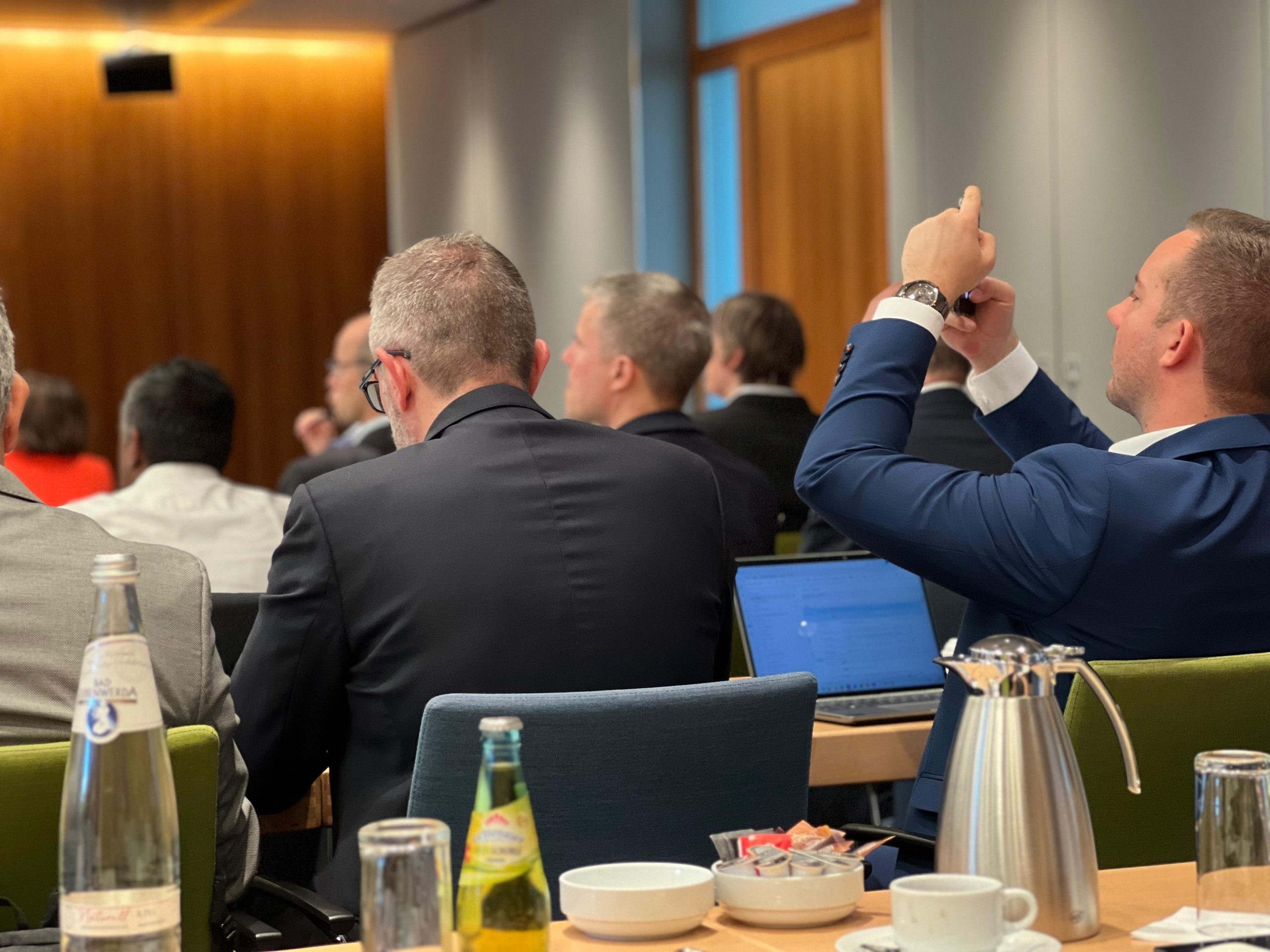
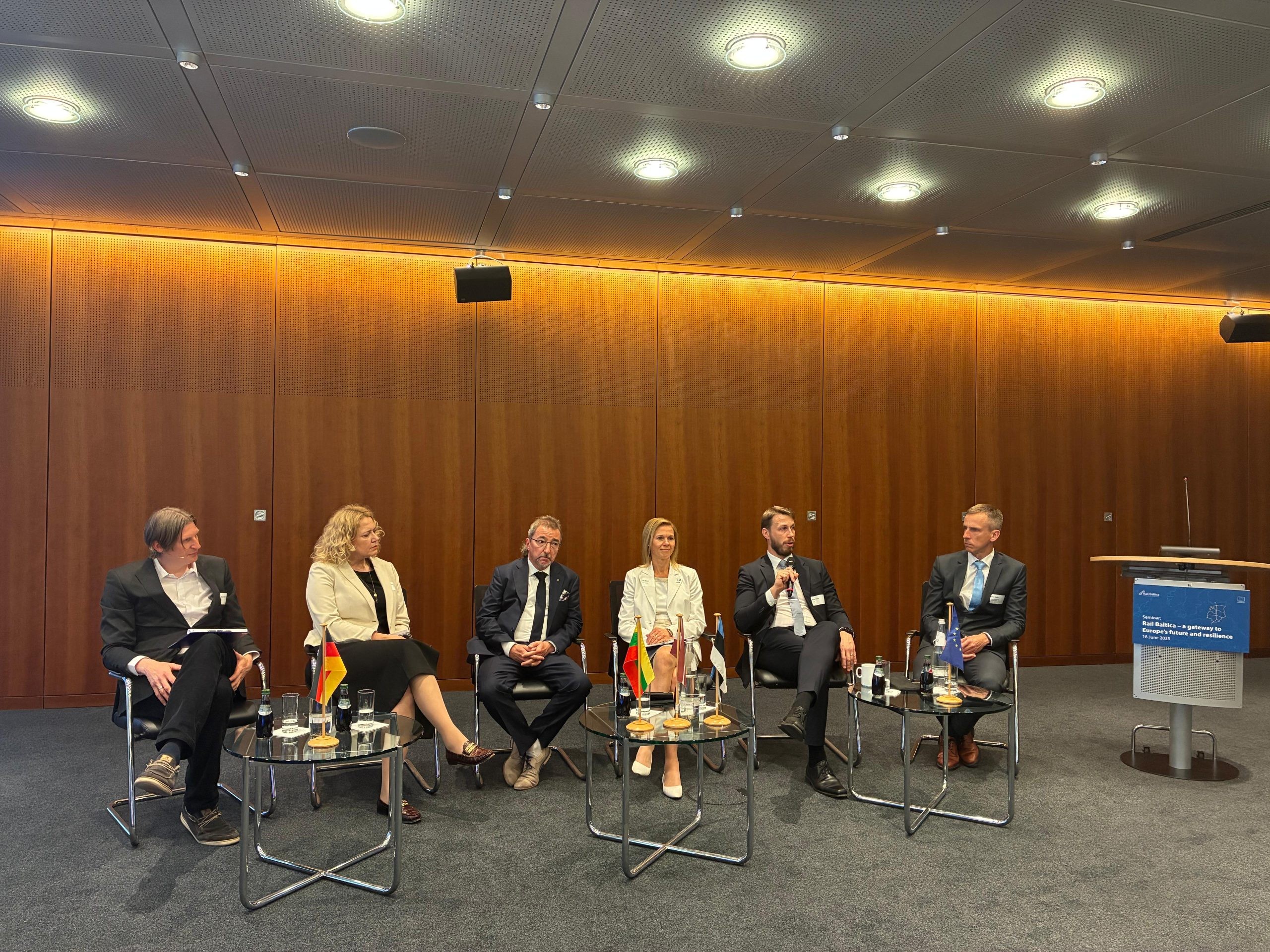
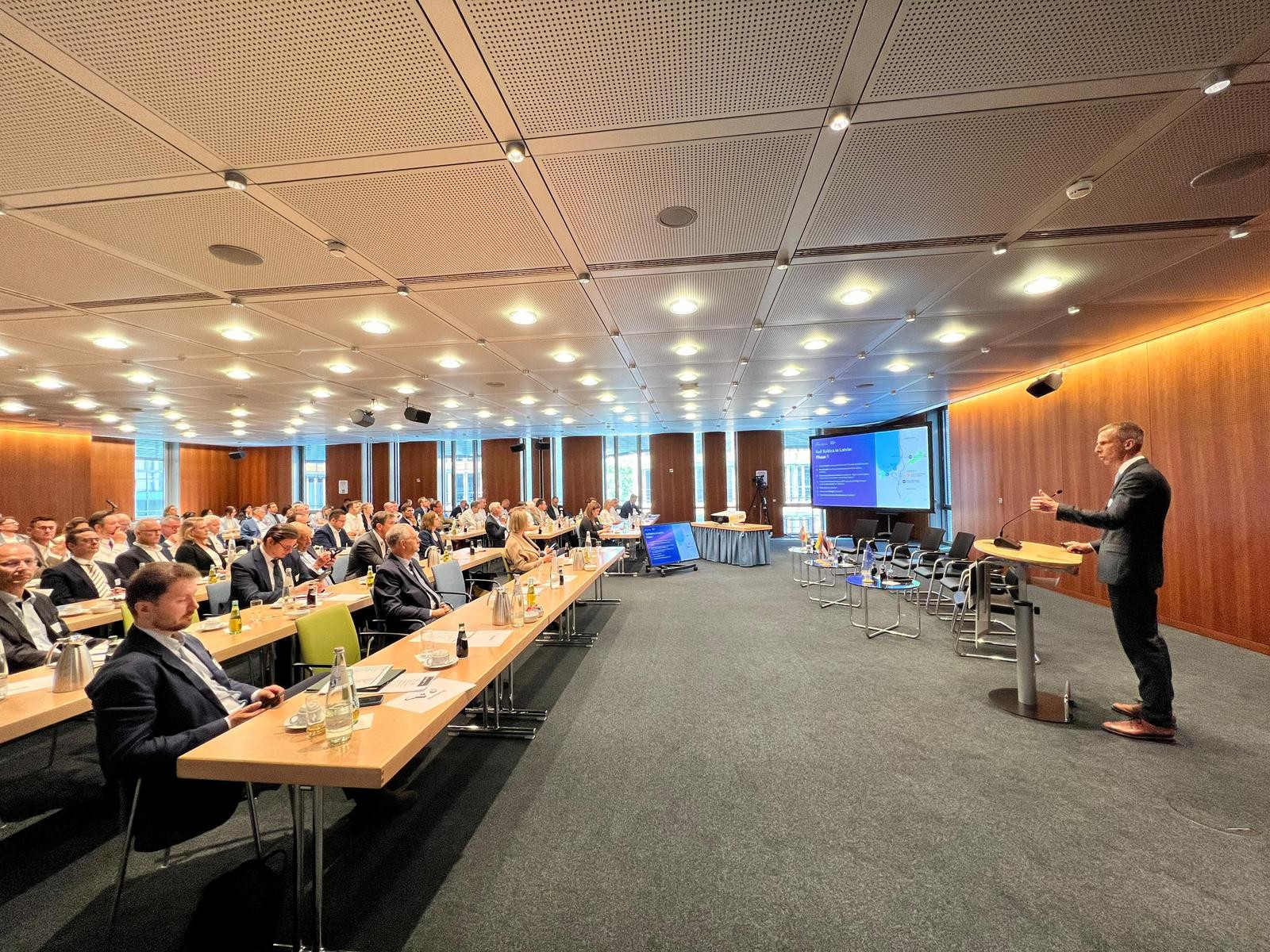
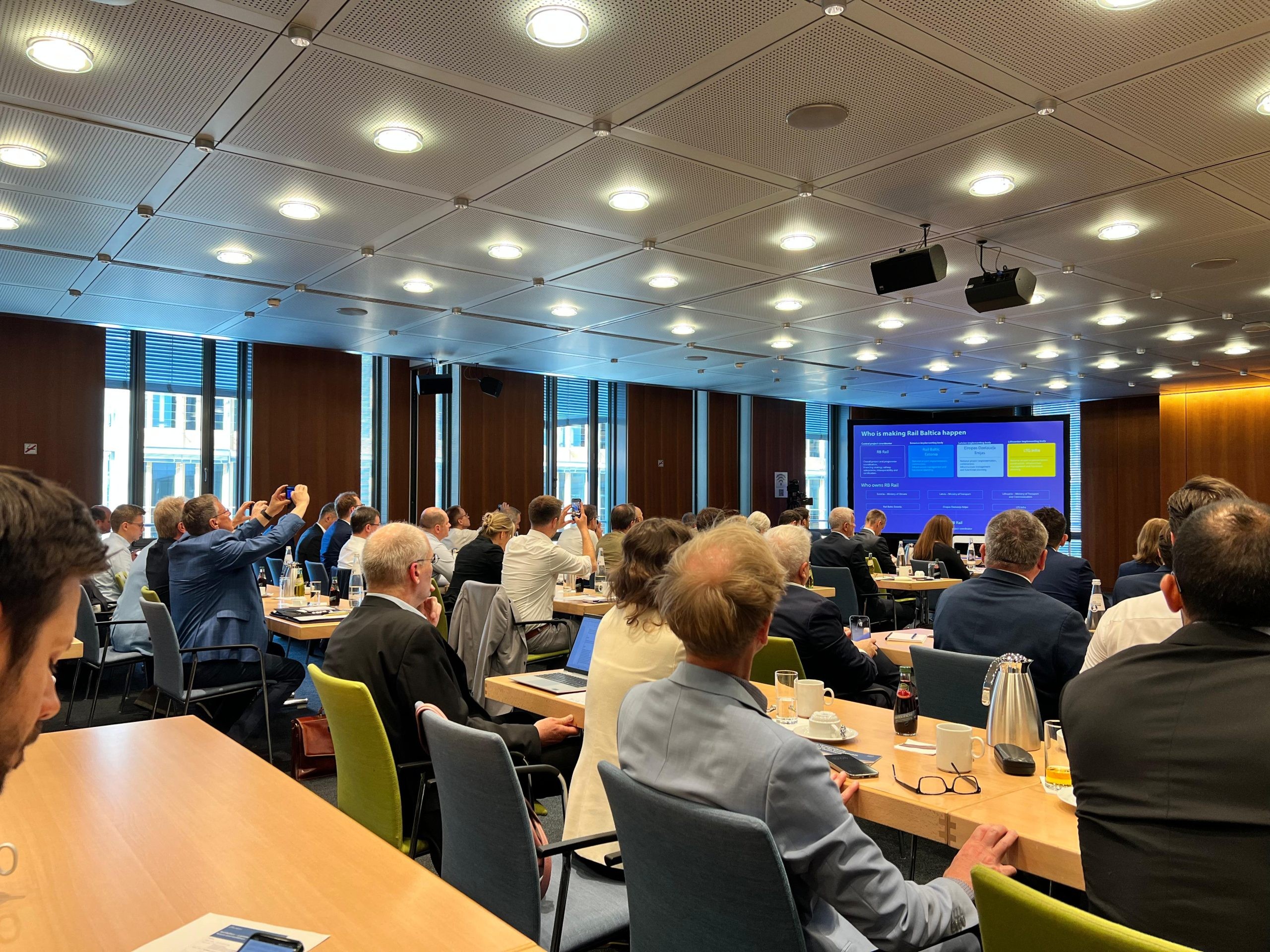
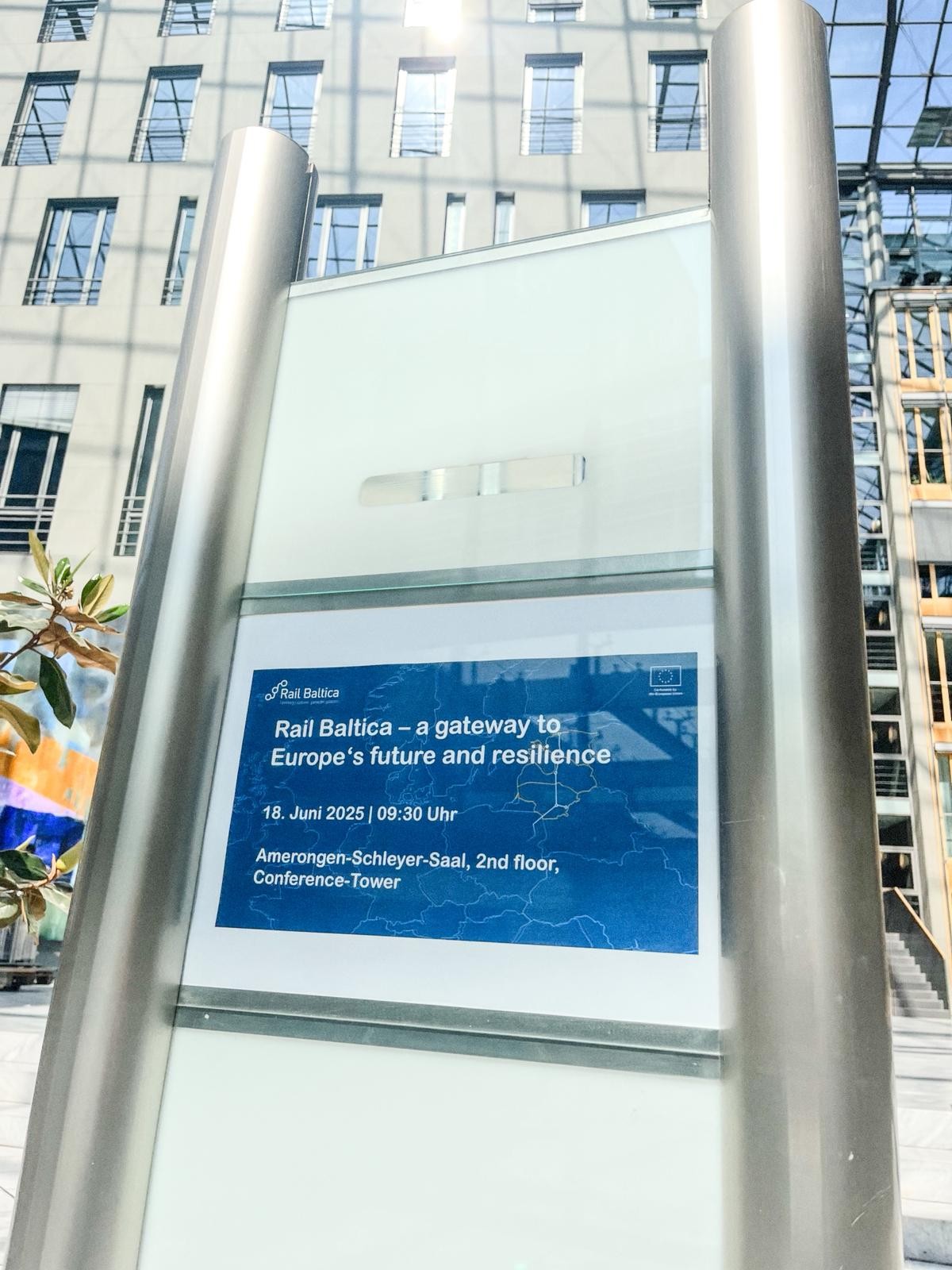
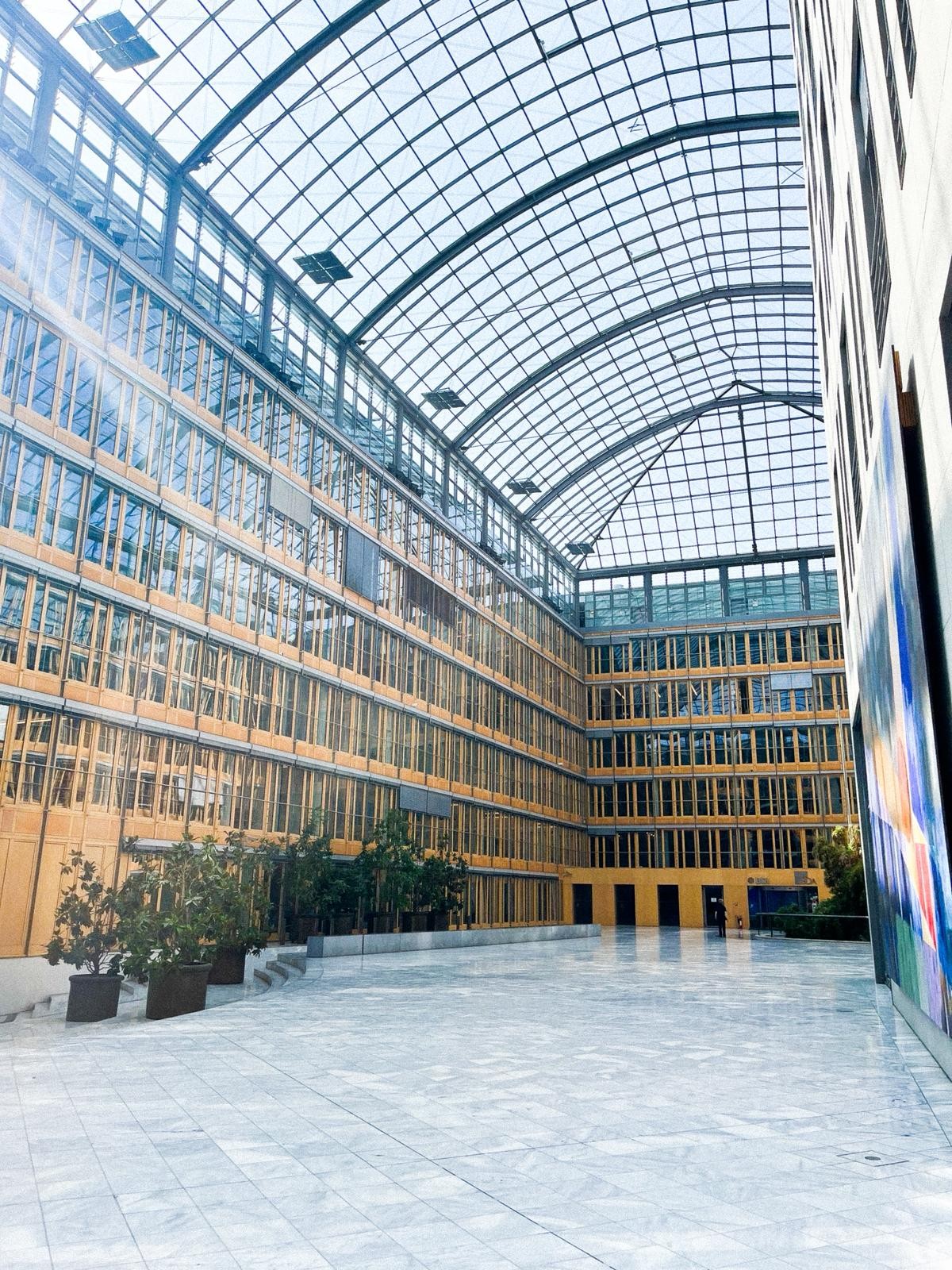
A panel discussion moderated by journalist Alexander Welscher explored Rail Baltica’s role in reshaping infrastructure, logistics, and investment across Northern and Central Europe. Panelists — Marko Kivila (RB Rail), Riia Sillave (HHLA TK Estonia), Jörg Marienhagen (DB Engineering & Consulting), Kristina Meidė (LTG Link), and Jānis Naglis (Eiropas Dzelzceļa līnijas) – discussed how the project addresses long-standing connectivity gaps, strengthens north–south links, and drives regional development. Beyond transport, they highlighted Rail Baltica’s potential to foster deeper European integration, economic resilience, and sustainable innovation. Throughout the day, discussions also addressed broader challenges, including the impact of Russia’s war in Ukraine. Disrupted supply chains and rising material costs – particularly for steel and concrete – led to procurement delays and increased pressure on timelines. Still, as one speaker noted, conditions have since stabilized, and the Baltic economies are recovering.
Looking ahead, speakers agreed that sustained and timely funding will be essential to maintain momentum. “Right now, our focus must be on securing the fuel to reach the target – and that fuel is financing. Ensuring timely and sufficient funding is essential to empower construction companies to move forward and accelerate the project at full speed,” emphasized Marko Kivila, CEO and Chairman of the Management Board at RB Rail AS.
Rail Baltica involves more than 400 Baltic and international partners and businesses from over 30 countries. Through public procurement processes, Rail Baltica has established cooperation with 7 German companies, including Deutsche Bahn Engineering & Consulting, TÜV SÜD, Obermeyer, Railistics, RMCon, PTV, and Gauff Solutions. It also works closely with the German Railway Industry Association (VDB), the German-Baltic Chamber of Commerce (AHK), the German Logistics Alliance, and other international industry organizations.